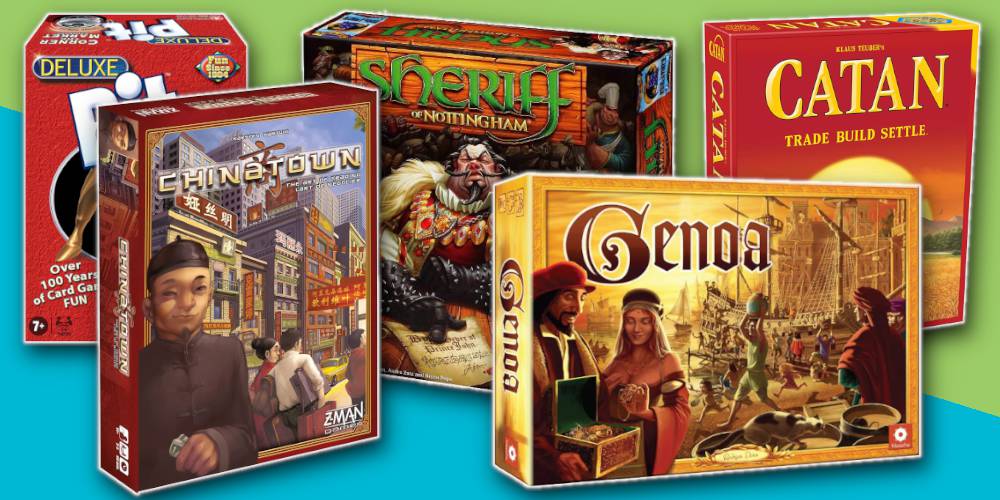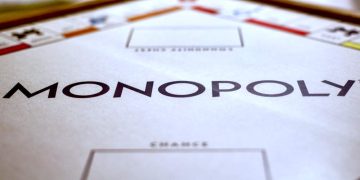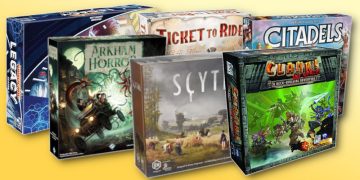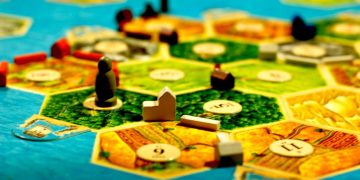A good trading board game can teach valuable life skills like cooperation, negotiation, delayed gratification, resource management, and how to formulate a strategy and plan ahead.
But a great trading board game is more than just an activity where cards and pieces trade back and forth between hands—it's an activity where players learn about each other, then exploit what they know.
And while that might sound antagonistic and mean, it doesn't have to be. In fact, many trading board games are light and fun, bringing friends and family to the same table and facilitating interaction.
Here are my picks for the best trading board games full of negotiation and bartering, with wildly varied options depending on what exactly you want in a board game and who you'll be playing with.
7. Sheriff of Nottingham
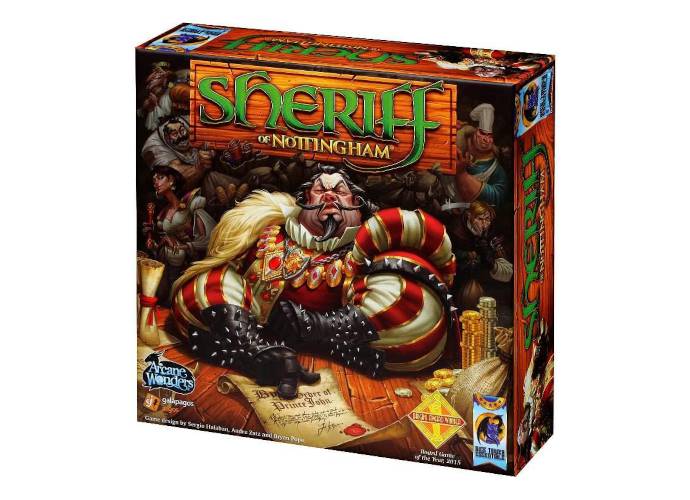
Players supported: 3 to 6 players
Average playing time: 45 to 60 minutes
Few board games actually engage in the reality of corrupt business trading like Sheriff of Nottingham. Perhaps this should be concerning considering that the game is set in the 13th century...!
In Sheriff of Nottingham, you conduct deals with other players using bundles that can include completely legal goods or be mixed with illegal contraband. You want to sneak in contraband, but it isn't easy.
You'll take turns as both Sheriff and as smugglers, and this is what makes this game especially dynamic. One thing you'll discover while playing Sheriff of Nottingham is that crime does pay.
6. Monopoly
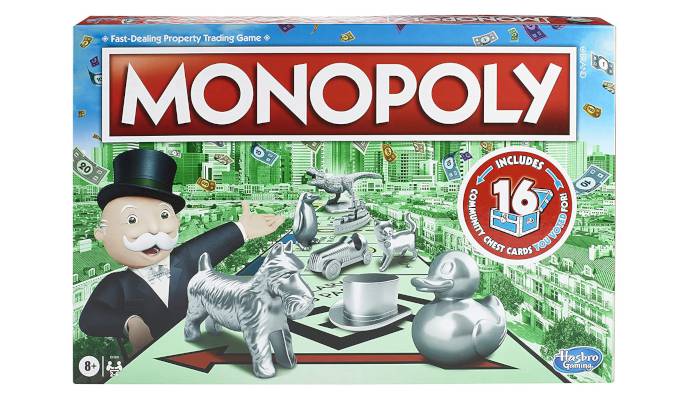
Players supported: 2 to 8 players
Average playing time: 60 to 180 minutes
Wait, Monopoly?! Okay, I realize that board game connoisseurs are sneering right now and read to spit on this list. However, if you take a step back, you have to admit: Monopoly is a staple of trading board games.
After all, Monopoly was invented as propaganda with a simple message: real-life monopolies are unsustainable. But when players dive into the game, they end up trying to crush their competition at all costs—and thus prove the underlying message of the game.
You need to trade properties to win in Monopoly, and you'll often make deals that aren't perfect, with one mistake potentially spelling your downfall. Then again, one smart trade could rocket you to the top.
Monopoly may not be the most fun trading board game, but it's important as a genre pioneer—and it's an excellent baseline against which all other trading board games are measured.
5. Pit
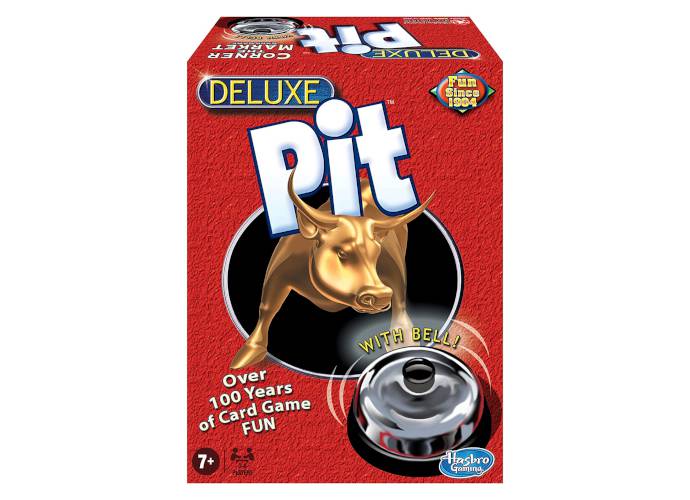
Players supported: 3 to 8 players
Average playing time: 30 to 60 minutes
In many ways, Pit is the polar opposite of Monopoly: a single game is over in minutes rather than hours; it only involves a single deck of commodity cards; it doesn't leave anyone in a sour mood by the end.
In Pit, everyone is dealt a hand of nine cards. The goal is to trade your commodities such that you end up holding all nine of a single commodity before someone else does—and all the trading is done in real-time!
This fast-paced arena of madness is unlike any other trading board game you've played. You'll be shouting "Two! Two!" only for someone to accept the trade... and give you garbage you don't need.
There's no time for carefully planned-out strategies. You might be able to deduce which commodities other players are trying to amass, but you don't have long to think about it. Pit only respects the laws of entropy.
You can teach Pit in less than a minute and each game is over in the blink of an eye. Of course, you'll want to play several games in a row to see who can amass the most points!
4. Sidereal Confluence
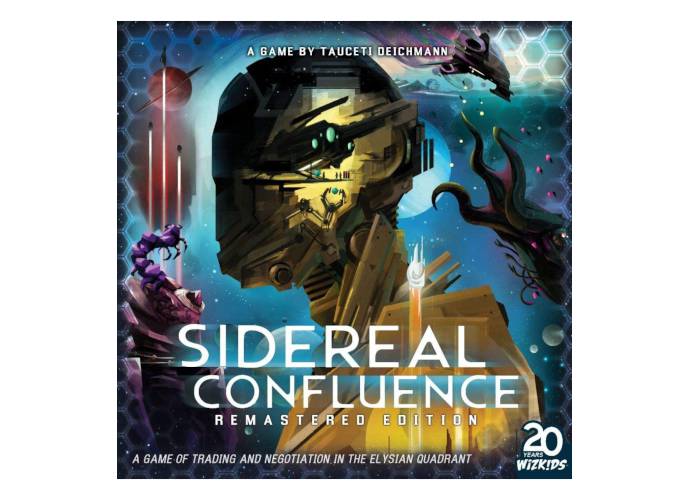
Players supported: 4 to 9 players
Average playing time: 120 to 180 minutes
When Ridley Scott pitched Alien to producers, he described it in a succinct sentence: "Imagine Jaws, but in space." I'll steal that and describe Sidereal Confluence in the same way: "Imagine Catan, but in space."
To be fair, Sidereal Confluence is a lot more complex than Catan, so this isn't just a retheme. It's a much richer experience with tougher decisions and more nuanced negotiation. But in three words? Catan in space.
Sidereal Confluence is a trading board game between a conglomeration of different alien species. Players choose which species to play at the start of the game, and each species has its own special ability.
The goal is to get as many points as possible before the game finishes. It's fast-paced, complicated, and can get fiercely competitive, but that's exactly why it's such a strong trading game!
3. Chinatown
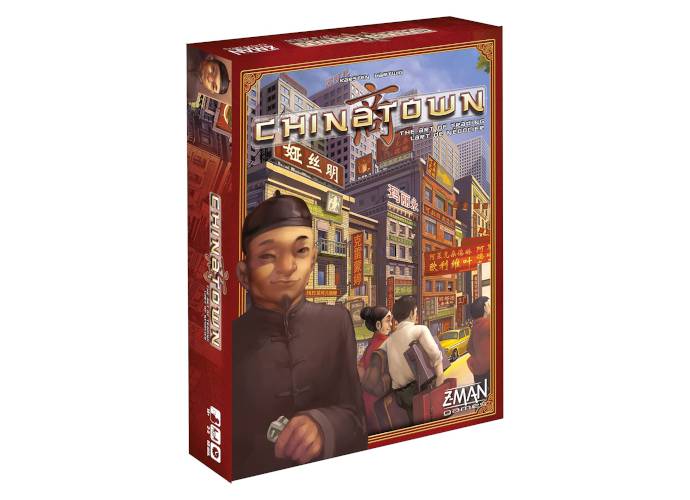
Players supported: 3 to 5 players
Average playing time: 60 to 120 minutes
Chinatown is truly one of the best trading based games today.
Imagine it's 1960s New York. You've immigrated to the country, you've ended up in Chinatown, and you want to start a business in pursuit of the American dream. But you aren't the only one with this ambition.
Much like Monopoly, Chinatown involves lots of land owned by different players, and those lots are developed into businesses for earning profit. But unlike Monopoly, the value of each lot fluctuates depending on how it's developed and where it's situated related to other lots.
In other words, different players will end up wanting different lots for different reasons. What does that mean? Lots of trading and negotiation! Chinatown is the purest negotiation board game of all.
2. Genoa
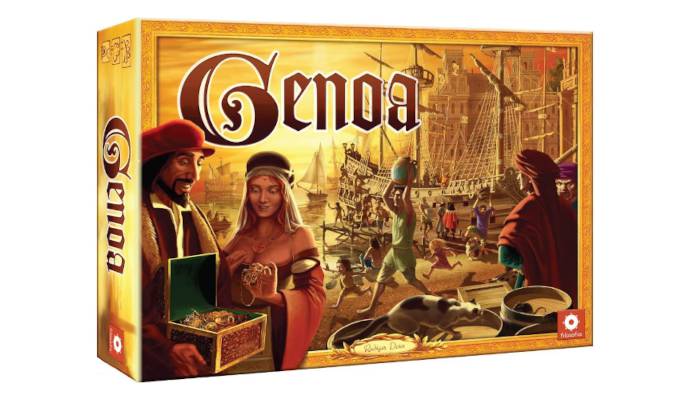
Players supported: 2 to 5 players
Average playing time: 60 to 120 minutes
Genoa is an outstanding board game because its designers really took the meaning of the word "trade" to heart.
Set in the Italian port of Genoa in the 16th century, you all play as traders who find yourselves in the midst of an economic boom.
Much like the other games on this list, you'll be buying land and building properties to earn points, and you'll be trading frequently to get what you want. But even for the trading genre, Genoa has a lot of bargaining.
I'm ranking Genoa in second place because the game really embraces the effects of trading, and those effects permeate every layer of the game. Through negotiations, this 16th century Italian port comes to life.
1. Catan
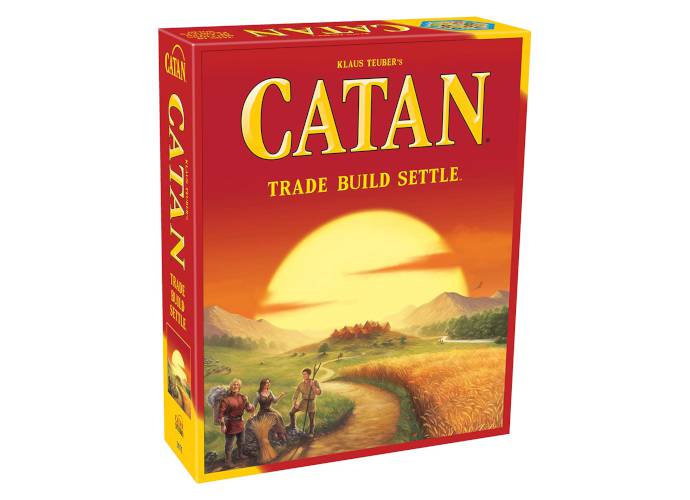
Players supported: 3 to 4 players
Average playing time: 60 to 120 minutes
To this day, Catan remains one of the ultimate "gateway" games that's great as an introductory board game for non-gamers who don't know much beyond Monopoly and Trivial Pursuit.
Catan is easy to learn, sufficiently engaging, and highly replayable due to its modular board and variable setup. The theme is also appealing as you play as settlers on a virgin island working to build up a civilization.
In order to do that, you need to acquire resources and then convert those resources into roads and buildings. The problem is, you don't have equal access to all of the resources—and that means lots of trading.
Catan is far from the deepest trading board game, but that's why so many people love it. There are decisions to be made, but those decisions aren't overwhelmingly complex.
So many board gaming enthusiasts entered the hobby through this game. It stands on the shoulders of Monopoly, and many better games stand on the shoulders of Catan. For that, it deserves respect.
